Bring Agentic AI to IGA
Tame the complexity of identity with the speed of AI. Just ask Albus. Easily build efficient policies, detect anomalies, and reason through tough identity problems.

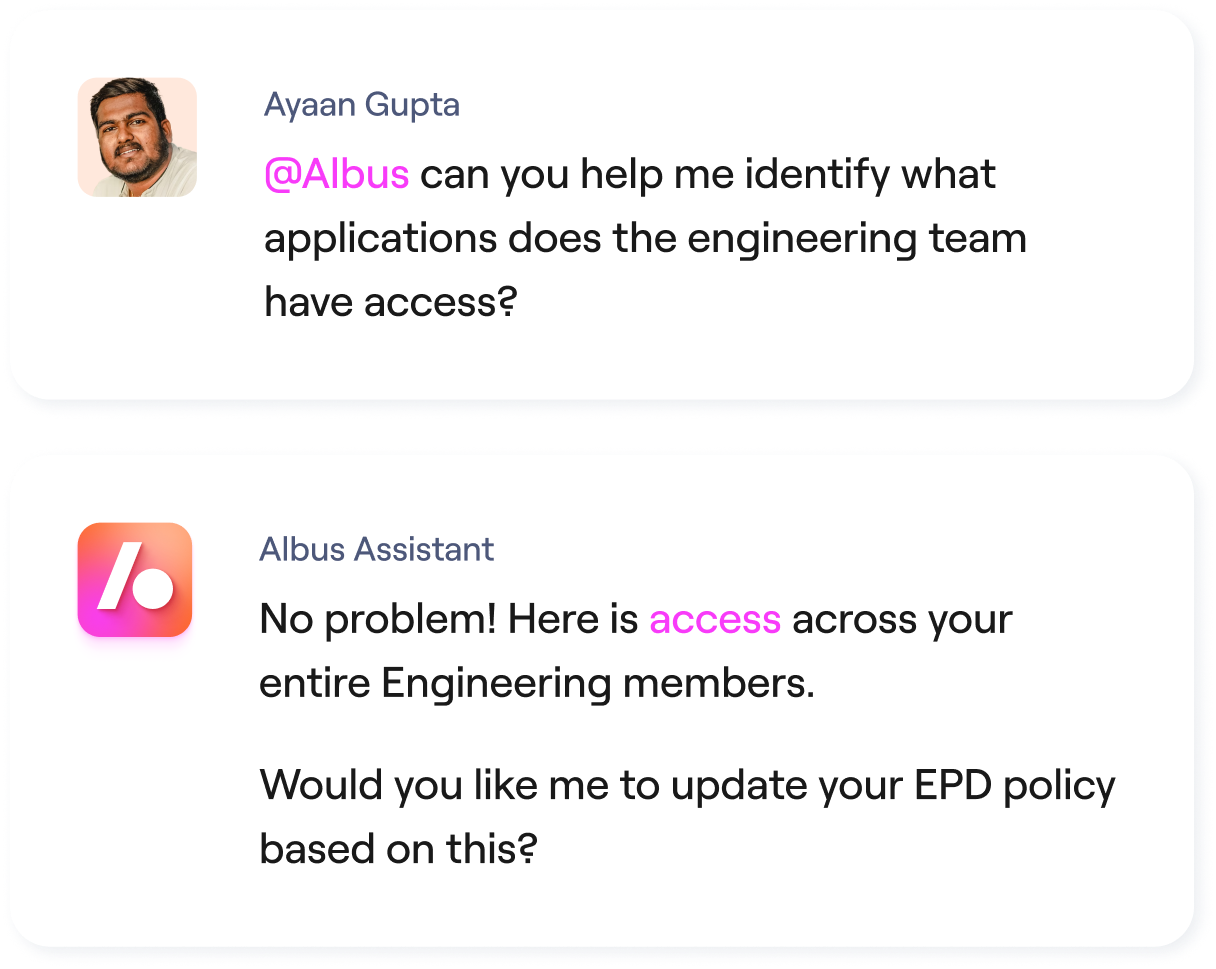
Trusted by the Industry’s Best







Work with Albus, the First Identity Agentic AI Framework
Trusted, transparent, ready in minutes. Albus explains every recommendation—across access policies and reviews—with evidence so you can review and refine fast. Day 1 value, zero guesswork.

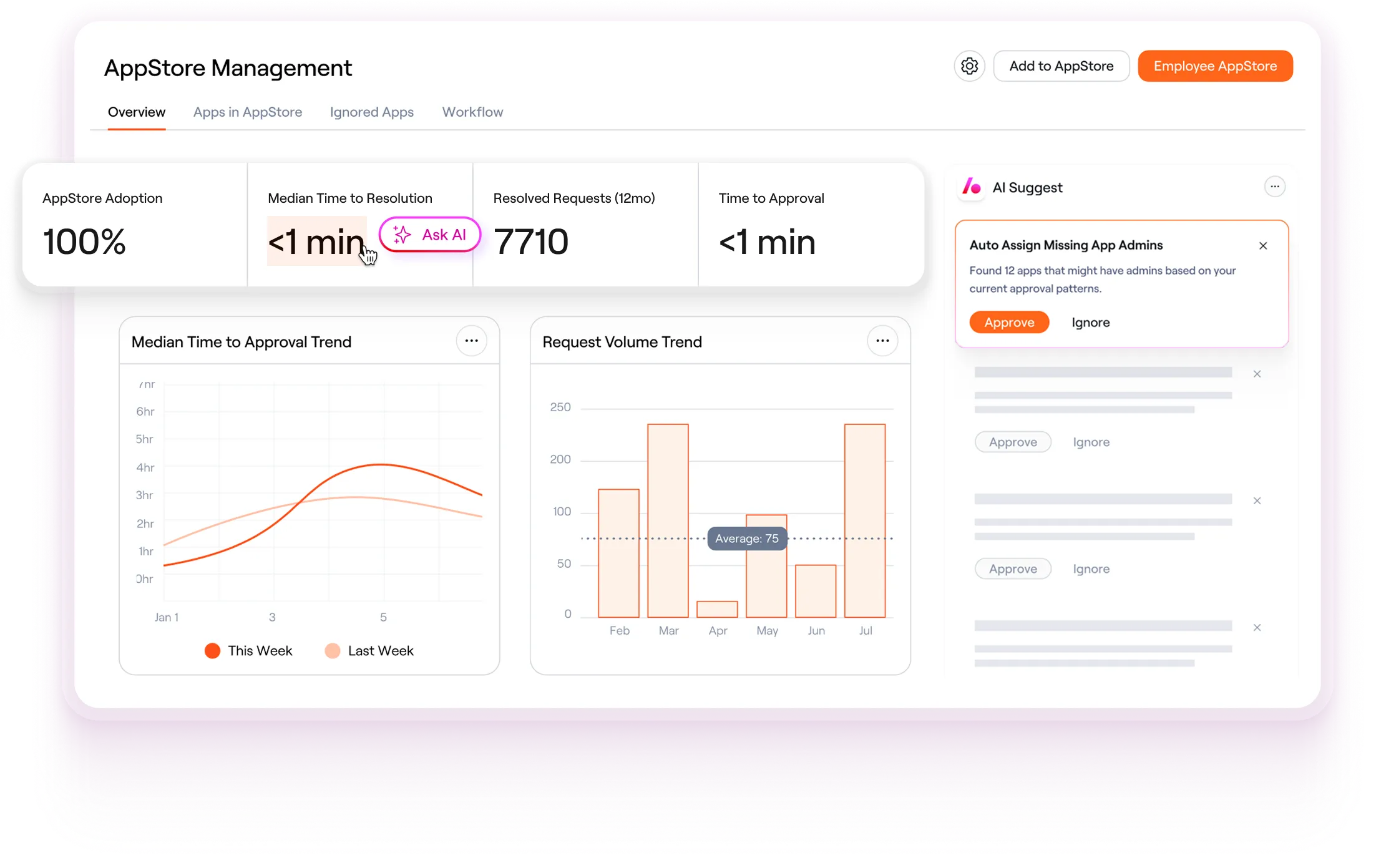
Have Agentic AI Do the Heavy Lifting
Unify fragmented identity data into a policy-ready model, cut manual review cycles, and move from insights to actions. Lumos' Autonomous Identity platform eliminates rubber-stamping, ticket churn, security, and audit risks.
Build dynamic roles that actually scale
Albus ingests HRIS data, app assignments, and usage logs to uncover patterns and propose clean RBAC/ABAC policies. No more rubber-stamping.
Close reviews in minutes
Albus recommends using key attributes and usage data. You stay in control, weighing in where judgment matters.
Ask, analyze, and act with data-driven insights
Query Albus in natural language and get context-rich answers that move you from raw data to clear decisions.
Outcomes You Can Measure
Solve Your Governance Use Cases
Go from messy to usable policies in weeks
Albus ingests HRIS data, app assignments, and usage logs. It unearths common patterns and creates clean RBAC/ABAC policies. Albus understands each entitlement (e.g., admin vs read), suggests optimum role combinations, and explains the “why” so you can tune assumptions. No more rubber-stamping.
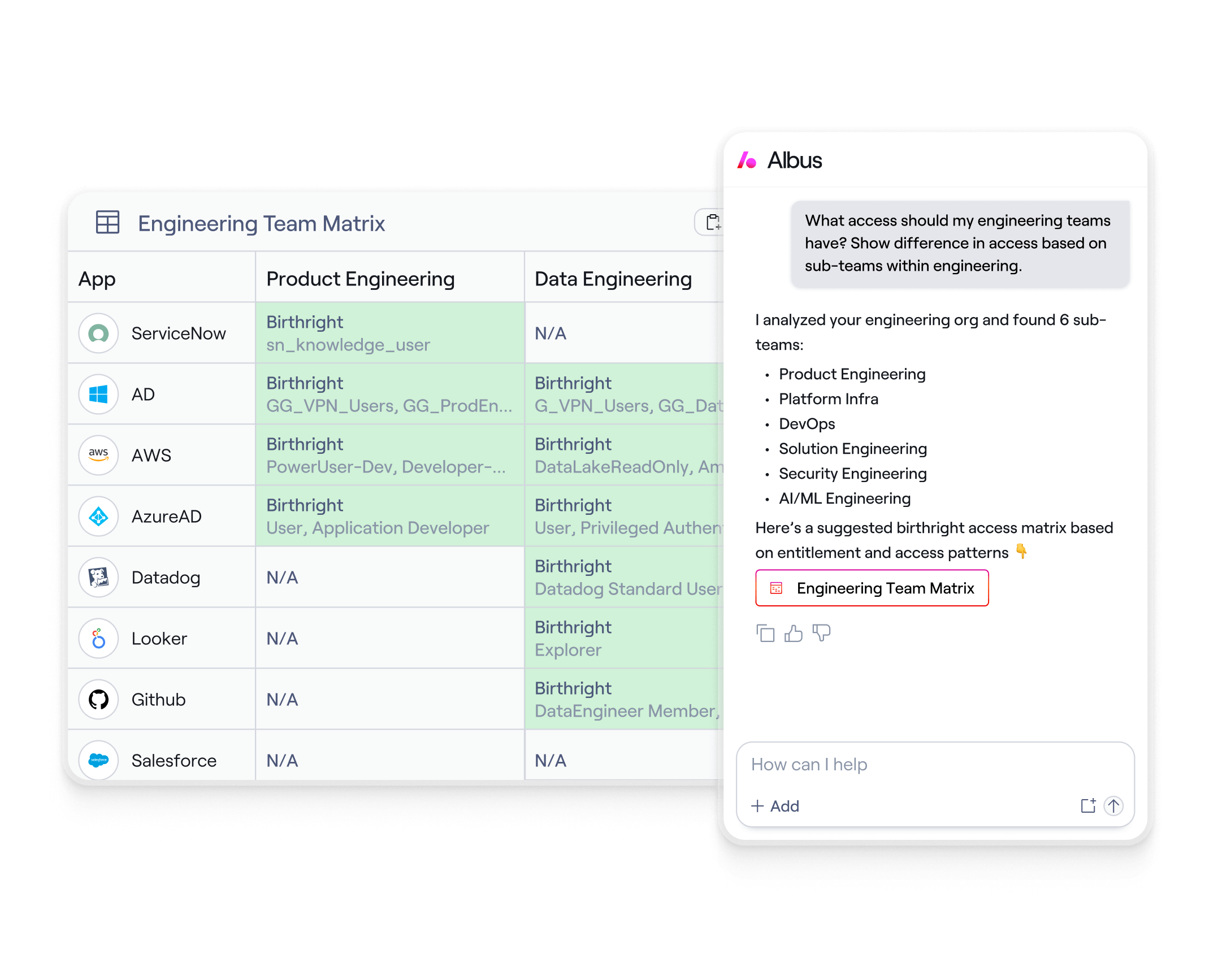
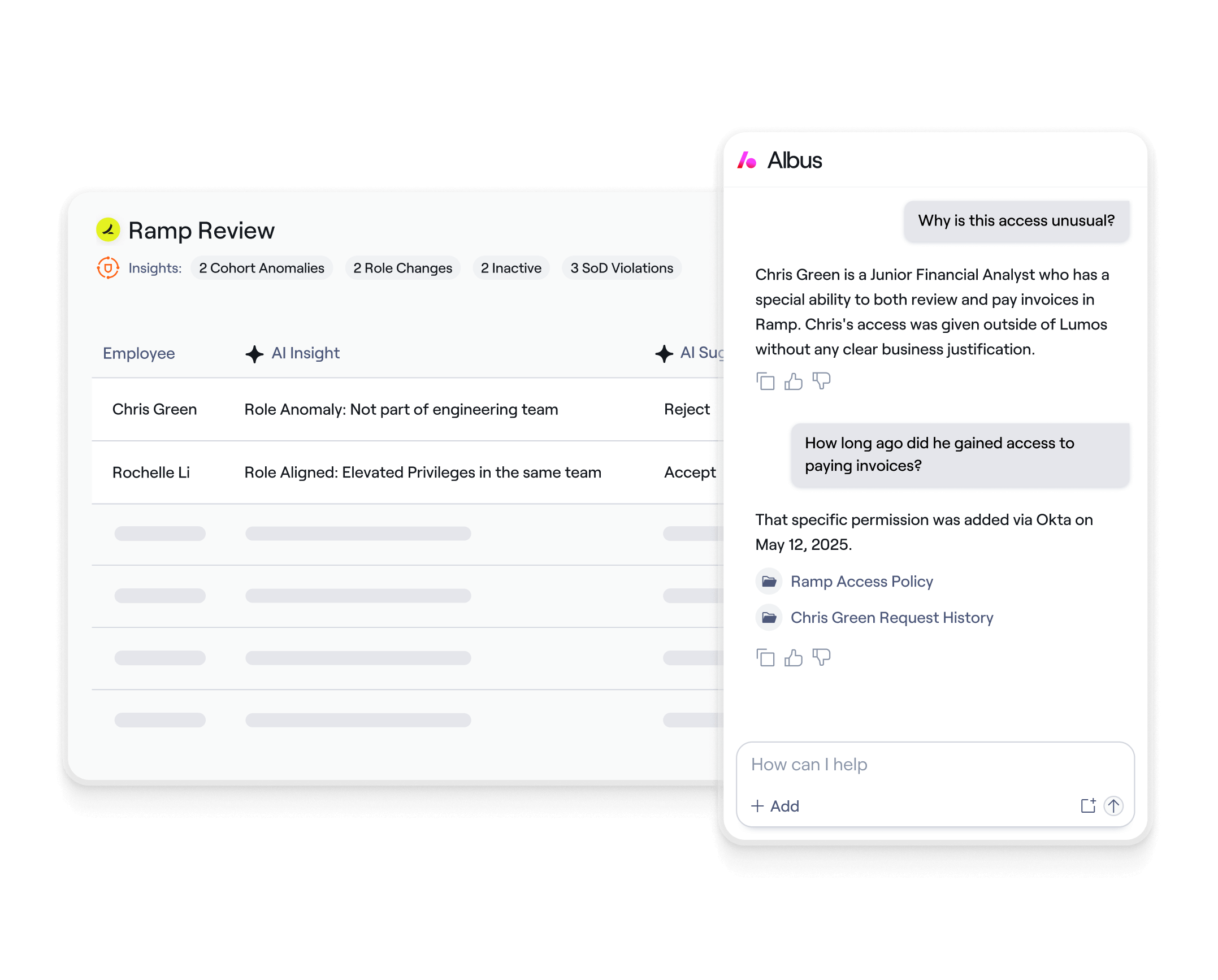
Complete access reviews 7x faster
Albus approves or rejects using peer-group analysis and usage anomalies while admins and app owners stay in control. It flags new access, SoD violations, role anomalies, and privileged access. Albus focuses reviewers on deltas - what changed since the last cycle, and auto-captures evidence to finish reviews in minutes.
Investigate 10x faster with LLM-based identity analyst
Ask natural-language questions and Albus scans users, apps, and entitlements to find dormant accounts, policy drift, and SoD violations. Get usage/peer/role baselines, impact-aware priorities, and uncover more risks faster with less noise.
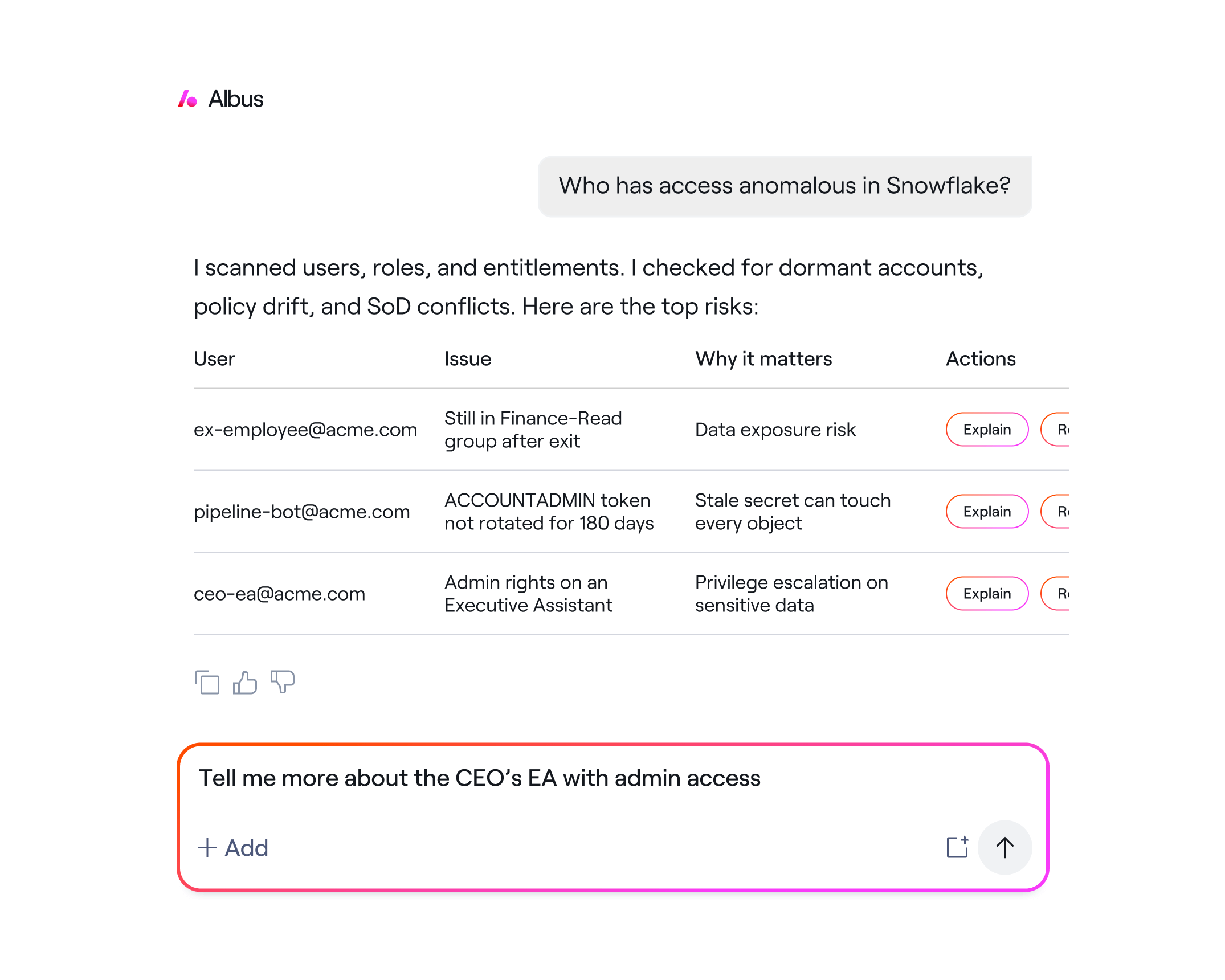

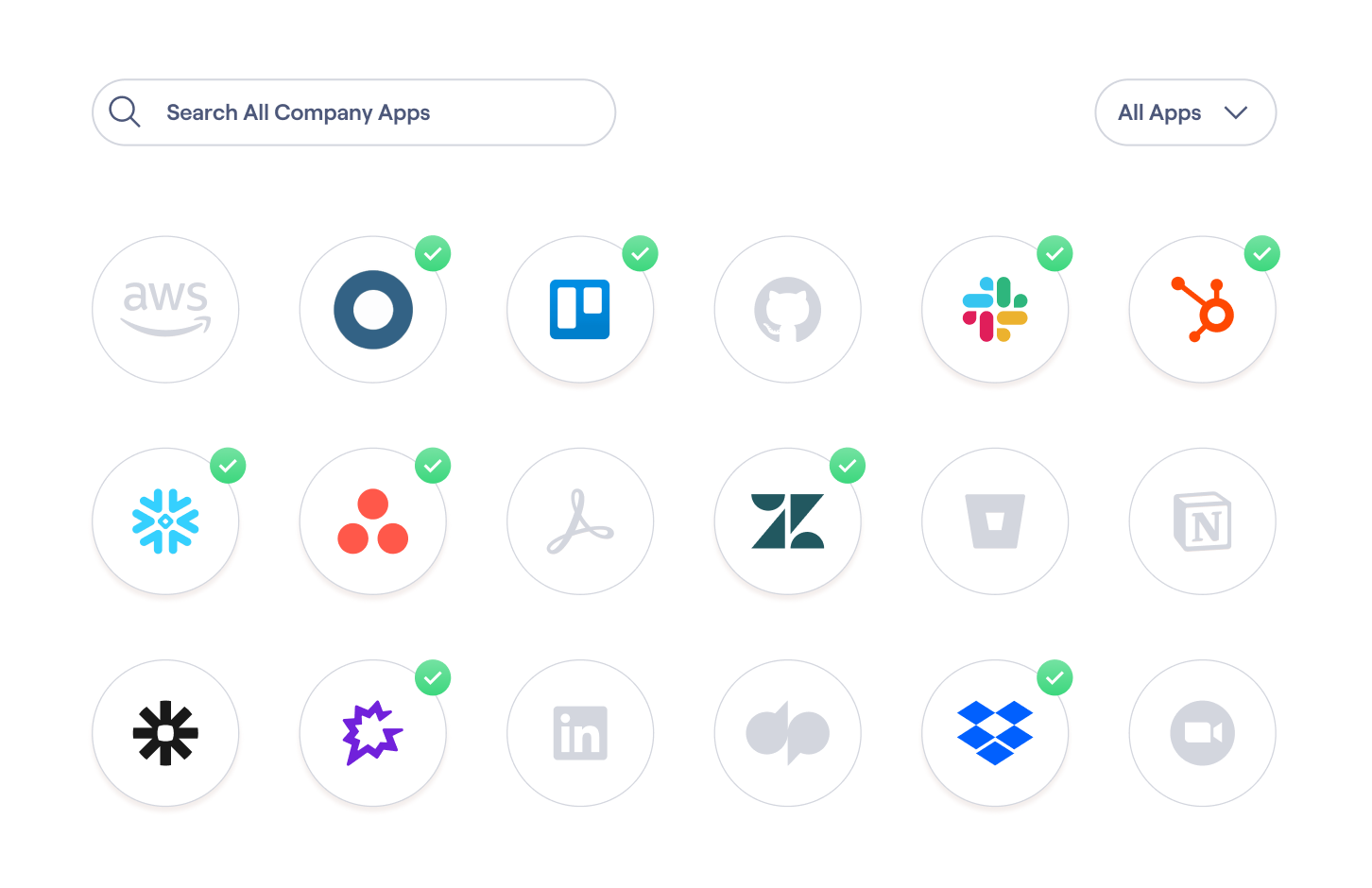











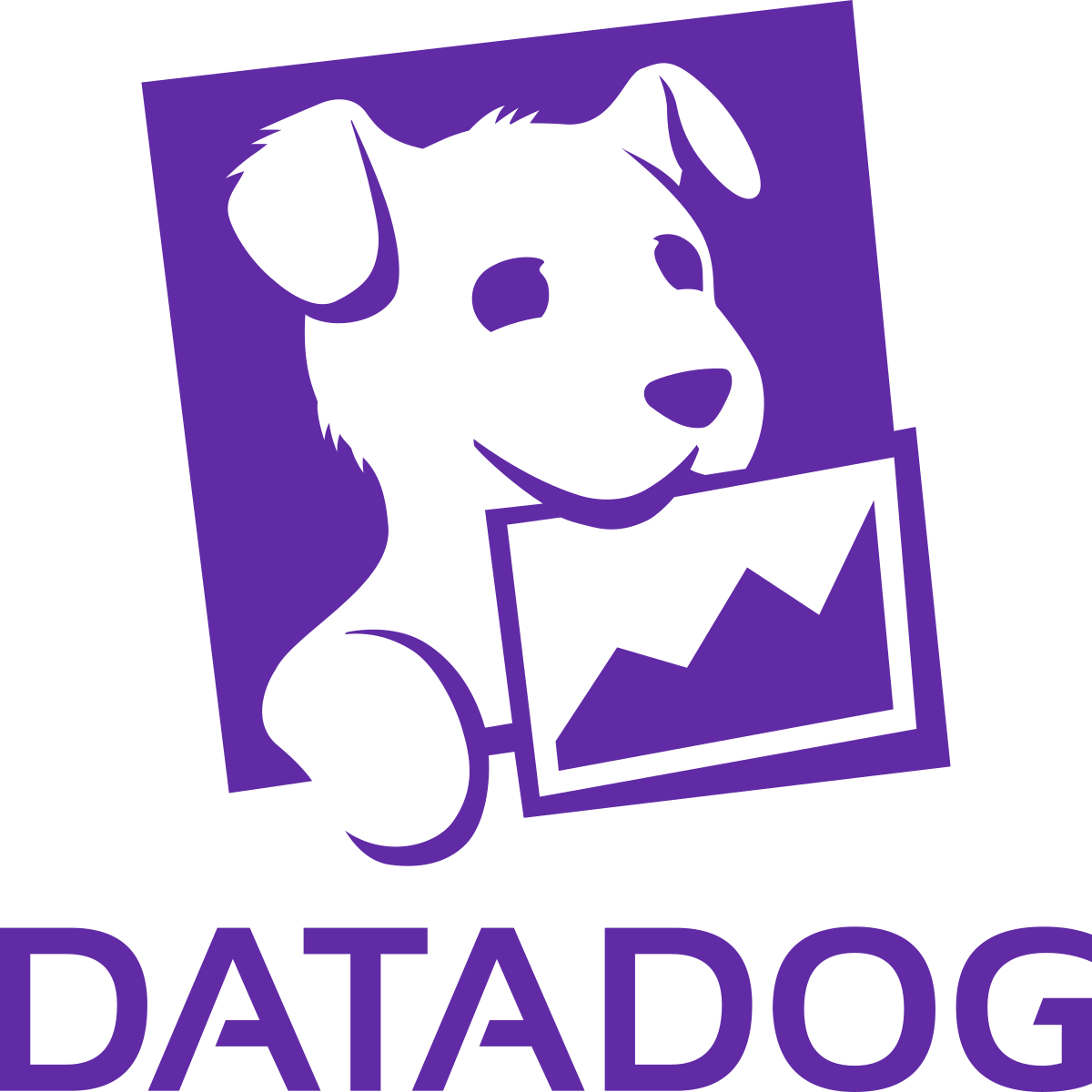
Additional Resources
Frequently Asked Questions
Autonomous Identity Governance and Administration (IGA) is a modern approach to managing user access that leverages automation, AI, and real-time insights to govern identities with minimal human intervention. Instead of relying on manual processes and static roles, autonomous IGA adapts dynamically to organizational changes; automatically provisioning, reviewing, and deprovisioning access as users join, move, or leave. Lumos delivers autonomous IGA through Albus, its AI identity agent, enabling faster onboarding, continuous compliance, and secure least-privilege enforcement at scale.
An AI identity agent is an intelligent, automated assistant that helps IT and security teams manage identity governance tasks more efficiently. It analyzes access data, detects anomalies, recommends policy improvements, and helps enforce least-privilege access – all in real time. Lumos’ AI identity agent, Albus, transforms how teams manage access by identifying unused entitlements, optimizing roles, and accelerating decision-making during access reviews and policy enforcement.
Autonomous identity management uses AI and workflow automation to govern identities throughout their lifecycle, from onboarding to offboarding, without constant manual oversight. It connects to systems like HRIS, IdP, and SaaS tools to detect changes (e.g., role changes or departures), then triggers appropriate access actions automatically. With Lumos, autonomous identity management includes joiner-mover-leaver workflows, self-service app access, automated access reviews, and AI-driven policy recommendations; all managed through a single, unified platform.
Automating access reviews involves using identity governance tools to schedule, assign, and track access certifications without relying on spreadsheets or email threads. Lumos automates every step of the process: notifying app owners, surfacing intelligent recommendations via Albus, logging reviewer comments, and enforcing decisions across connected systems. This not only reduces review fatigue but also ensures that audits are always complete, compliant, and audit-ready.
Segregation of Duties (SoD) violations occur when a single user has access or permissions that create a conflict of interest or increase the risk of fraud, error, or security breaches. For example, if one person can both approve expenses and issue payments, that’s an SoD violation; because it removes the necessary checks and balances that protect organizational integrity. Lumos helps prevent SoD violations by enforcing least-privilege access, automating User Access Reviews (UARs), and enabling entitlement-level visibility across all users and systems. With policy-based access controls and AI-driven insights from Albus, Lumos flags risky permission combinations, monitors for access drift, and ensures that roles are appropriately scoped.
Try Lumos Today
Book a 1:1 demo with us and enable your IT and Security teams to achieve more.






